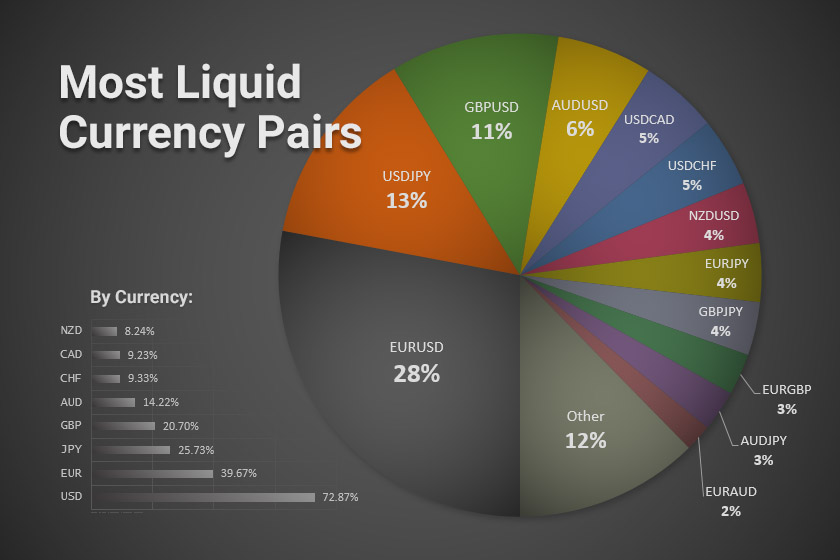Foreign exchange reserves, commonly referred to as forex reserves, play a pivotal role in the global economy. They represent the financial assets held by a country’s central bank and serve as a cushion against external economic shocks. Major countries worldwide maintain substantial forex reserves to ensure economic stability, manage their currencies, and facilitate international trade.

Image: howtotradeonforex.github.io
The composition of forex reserves varies across countries, but they typically include currencies of other countries, gold, and special drawing rights (SDRs) issued by the International Monetary Fund (IMF). Countries accumulate forex reserves through various means, including trade surpluses, foreign direct investment, and borrowing. The size of these reserves is a reflection of a country’s economic strength and its ability to withstand financial crises.
China: The Forex Heavyweight
China holds the world’s largest forex reserves, with a staggering amount of over $3 trillion. The country’s decades-long trade surpluses and its massive manufacturing sector have fueled the accumulation of these reserves. China’s forex holdings allow it to exert significant influence in global currency markets and provide a buffer against potential economic headwinds.
Japan: A Cushion for External Shocks
Japan boasts the second-largest forex reserves, exceeding $1.3 trillion. The country’s dependence on imports and its history of natural disasters have led it to maintain a substantial reserve. Japan’s forex holdings provide a safety net to mitigate risks associated with fluctuations in global energy prices and natural calamities.
Switzerland: A Haven for Wealth
Despite its relatively small size, Switzerland ranks third in forex reserves with over $800 billion. The country’s reputation as a safe haven for wealth management and its stable political environment have attracted foreign investors. Switzerland’s forex reserves serve as a protective shield against potential currency fluctuations and economic uncertainty.

Image: www.youtube.com
Russia: A Commodity-Backed Reserve
Russia’s forex reserves stand at around $500 billion. The country’s vast oil and natural gas exports have played a crucial role in accumulating these reserves. Russia’s forex holdings help stabilize the ruble and provide a financial cushion against potential economic sanctions or fluctuations in energy prices.
Germany: A Defensive Buffer
Germany, Europe’s economic powerhouse, holds forex reserves of over $300 billion. The country’s export-oriented economy and its commitment to fiscal discipline have contributed to its ample reserves. Germany’s forex holdings act as a defense mechanism to protect its economy from external financial turbulence.
United States: A Reserve in Transition
Once the undisputed leader in forex reserves, the United States now ranks below China and Japan. Despite holding over $100 billion in reserves, the country’s persistent trade deficits and foreign military spending have depleted its forex stockpile. However, the U.S. dollar’s status as the world’s leading reserve currency provides a degree of flexibility in managing its fiscal situation.
Managing Forex Reserves: A Balancing Act
Maintaining optimal forex reserves requires a delicate balancing act. Excessive reserves can lead to underutilization and lost investment opportunities, while inadequate reserves may leave a country vulnerable to economic shocks. Countries must carefully assess economic conditions, global financial trends, and their individual circumstances to determine the appropriate level of forex reserves.
Forex Reserves Of Major Countries
https://youtube.com/watch?v=IN177td2dcM
Conclusion
Forex reserves are an indispensable component of global financial stability. Major countries worldwide maintain substantial forex reserves to bolster their economies and navigate the tumultuous waters of the international financial system. The size and composition of these reserves reflect a country’s economic strength, geopolitical position, and its ability to withstand external shocks. As the global economy continues to evolve, forex reserves will remain a crucial indicator of a country’s financial prowess and its resilience in an interconnected world.






